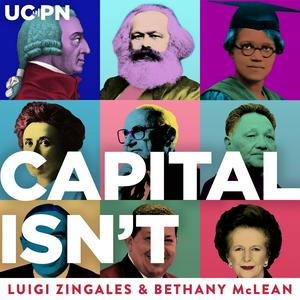Why Trump Is Deregulating In The Wrong Way, with Sam Peltzman
In President Donald Trump's recent joint address to Congress, he said, "To unshackle our economy, I have directed that for every one new regulation, ten old regulations must be eliminated." Elon Musk, whom Trump has assigned to execute this vision, has argued that it is time to get rid of all regulations, or as Musk said, “regulations, basically, should be default gone.”Joining Bethany and Luigi to discuss this intensified commitment to deregulation and laissez-faire capitalism is Sam Peltzman, perhaps the leading living expert on the economics of regulation. Peltzman is the Ralph and Dorothy Keller Distinguished Service Professor Emeritus of Economics at the University of Chicago’s Booth School of Business and director emeritus of the Stigler Center, which sponsors this podcast and is named after his mentor, Nobel-Prize laureate George Stigler. Together, the three of them chart a historical perspective on regulation, from Stigler’s ideas of regulatory capture to the unintended consequences of deregulatory efforts over time to today’s “chainsaw” approach to gutting federal agencies. To understand the costs and benefits of regulation, they discuss how federal agencies have recently intervened in markets, if the private sector could not have accomplished these interventions more efficiently, and if these interventions did more harm than good. Their case studies include the funding, testing, and rollout of the COVID-19 vaccine, the regulation of cryptocurrencies, the management of the collapse of Silicon Valley Bank, and the role of the government in addressing climate change. In the process, they answer the trillion-dollar question: Are Trump's deregulation efforts actually efficient?Episode Notes:Revisit our recent episode with Federico Sturzenegger, the Argentinian Minister for State Transformation and DeregulationRead the op-ed Bethany mentions writing in the wake of the financial crisis: Who Wants a 30-Year Mortgage?At the end of the conversation with Peltzman, Luigi asks him about his recent academic papers tracing marriage and happiness. Read these papers on the Stigler Center’s Working Paper archives: The Socio-Political Demography of Happiness (2023) and The Anatomy of Marital Happiness (2025)
